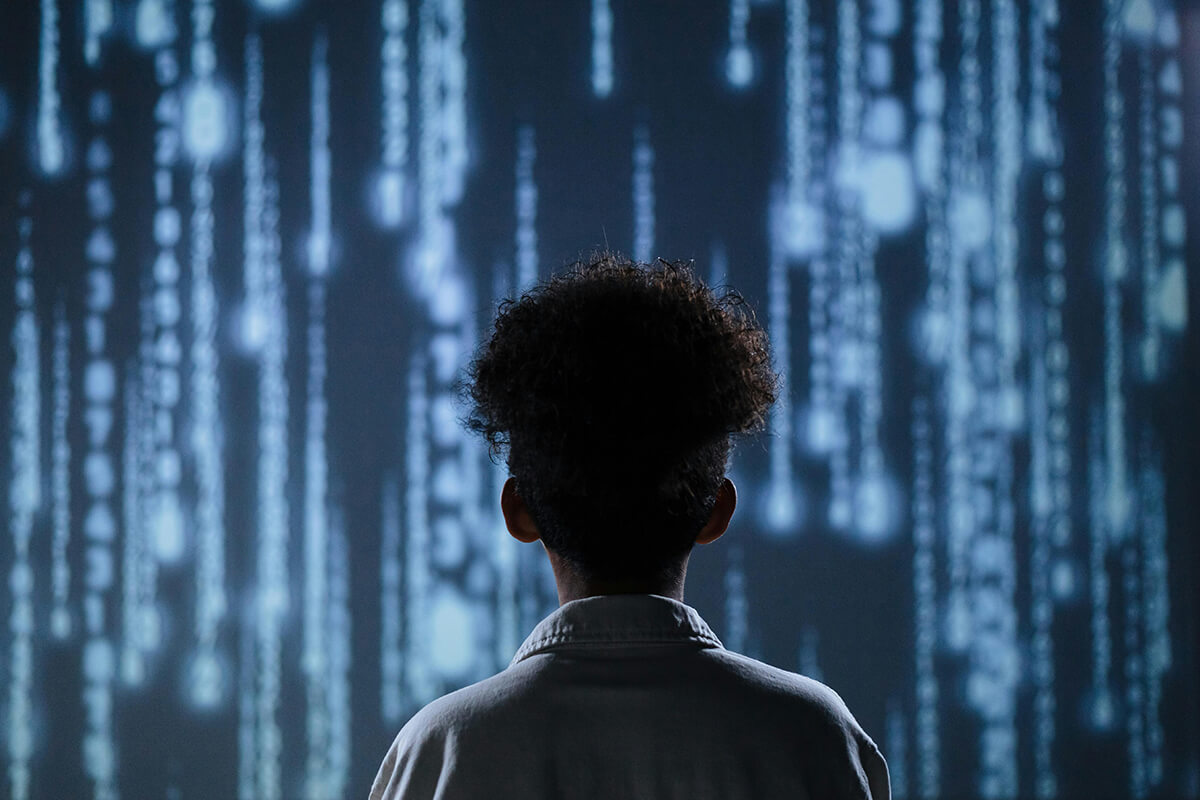Imagine reducing repetitive tasks, enhancing employee engagement, and making smarter hiring decisions—all without adding extra work to your HR team. That’s the power of AI (Artificial Intelligence) in HR (Human Resources). From automating job descriptions to delivering personalized development plans, artificial intelligence is transforming the way HR professionals manage the entire employee lifecycle. In this guide, we explore how AI technology is redefining human resources—and how you can use it to drive lasting impact across your organization.
What Is AI in HR? Understanding the Core Concepts and Differentiators
Let’s begin by clarifying the basics. AI in HR refers to the use of advanced technologies like machine learning, natural language processing, and predictive analytics to automate, personalize, and improve HR functions. This differs from simple automation, which follows static, rule-based workflows.
AI in HR is a dynamic tool. It can learn from human resource data, adapt to patterns, and even generate new content like job descriptions or onboarding guides. This includes:
- Predictive AI: Uses workforce data to forecast outcomes, such as employee retention.
- Generative AI: Creates new material like training modules or performance evaluations.
- Conversational AI: Engages users in natural dialogue, such as through chatbots.
Agentic AI systems are emerging, allowing platforms to take initiative, like automatically creating career pathing strategies or compliance training based on employee data.
Unlike traditional automation that executes routine tasks based on conditions (“if X, then Y”), AI capabilities evolve with your workforce’s needs. This makes it ideal for today’s rapidly changing business environments, especially as AI continues to ramp up in the workforce. By analyzing data patterns across the employee lifecycle, agentic AI can proactively suggest solutions before challenges arise. These systems represent a shift from reactive support to forward-thinking, strategic enablement within HR functions.
Generative AI in HR: Dynamic Content Creation for Modern Workforce Needs
Generative AI has unlocked a new level of content creation. HR leaders can now use generative AI tools to:
- Write job descriptions tailored to specific roles and teams
- Draft policy documents that meet legal and cultural standards
- Create inclusive employee communications
- Generate survey questions and engagement content
This level of AI technology in HR ensures a consistent tone and branding. In fact, nearly 75% of HR professionals say they trust the candidate recommendations made by AI.
In 2025, global companies are applying generative AI capabilities in:
- Image-based compliance training
- Personalized welcome messages during onboarding
- Recognition emails for top performers
These AI-powered HR applications enhance the employee experience and reduce the burden of repetitive tasks. HR leaders and HR teams are now leveraging artificial intelligence to streamline administrative tasks, improve employee engagement and bring efficiency to many HR functions. By incorporating AI for HR into talent management strategies, companies are delivering more personalized and impactful human resources solutions at scale.
Practical Use Cases: How to Use AI in HR Operations Today
How can you leverage AI in daily HR processes?
- Recruitment Process: AI chatbots schedule interviews, screen resumes and provide real-time updates.
- Onboarding: New hires receive personalized employee development paths with interactive modules.
- Learning & Development: AI tools recommend personalized learning resources based on role and behavior.
- Compliance & Policy Updates: Automated reminders ensure mandatory trainings are completed.
A 2025 McKinsey & Company study found that 92% of companies plan to increase their AI investments over the next three years, highlighting AI adoption as a top priority across industries.
Additionally, one of the world’s largest consumer goods companies, Unilever uses AI-driven deep learning to screen video interviews, helping reduce bias and accelerate the hiring process. Candidates complete online games that assess skills and traits, which AI matches to successful employee profiles. After hiring, new employees use “Unabot,” an AI chatbot that helps with HR questions and onboarding across multiple countries.
Top AI Tools in HR: Empowering Teams to Work Smarter, Not Harder
The following AI tools are being used across industries to transform HR functions:
- Paradox Olivia: Chatbot for candidate sourcing and engagement
- HireVue: Uses AI to assess tone, keywords and facial expressions in interviews
- Eightfold.ai: Predicts career paths and supports internal mobility
- Chronus: Enhances mentorship programs with AI models for pairing and insights
- Pymetrics: Gamified cognitive and emotional assessments for hiring
These new AI tools automate administrative tasks while enhancing strategic outcomes and enabling data-driven insights. By handling time-consuming processes such as candidate screening, interview scheduling and employee onboarding, these platforms free HR teams to focus on building stronger relationships and improving workforce development.
For example, tools like HireVue analyze non-verbal cues to provide a more objective evaluation of candidates, helping reduce unconscious bias. Meanwhile, Eightfold.ai uses predictive analytics to identify internal talent and career opportunities, promoting employee retention and growth.
The integration of AI-driven insights empowers HR professionals to make smarter decisions, align talent with business goals and create more personalized employee experiences. As a result, organizations can operate more efficiently and foster a more engaged, agile workforce.
Using AI in Mentorship and HR Coaching Programs
AI is transforming employee lifecycle initiatives like mentoring:
- Matchmaking: AI mentorship matching uses data on goals, skills and experience to pair mentors and mentees more effectively. It saves HR professionals time by replacing manual spreadsheets with automated, scalable solutions, as seen in companies like HCLTech.
- Tracking: AI captures real-time feedback during mentorship interactions, allowing HR teams to monitor progress and address issues early. These insights help keep mentorship aligned with employee development goals.
- Reflection: Generative AI supports growth by creating tailored prompts and journaling tools that encourage self-reflection. This helps mentees track milestones and gain deeper insights throughout their journey.
Mentorship software like Chronus helps HR professionals run data-informed programs that support the benefits of mentoring, including critical thinking, goal alignment and employee development. As AI continues to reshape how mentoring is delivered, organizations are using it to personalize matches, monitor progress and gain actionable insights that improve program effectiveness.
A recent Harvard Business Review study found that companies are leveraging AI to improve efficiency, reduce employee turnover, increase engagement and drive better business outcomes—further highlighting how technology is enhancing the impact and reach of mentoring in today’s workplace.
AI in HR Recruitment: Transforming Talent Acquisition with Intelligence
AI is redefining how organizations attract, evaluate and hire top talent by streamlining key aspects of the recruitment process. One of its strongest advantages is enhanced speed and precision in candidate evaluation.
AI for HR recruiting improves talent acquisition through:
- Resume screening via natural language processing
- Candidate ranking based on fit scores
- Automated outreach and follow-up
In addition to improving efficiency, AI helps manage large volumes of applicant data, enhancing data management and making it easier for HR teams to regularly assess hiring outcomes. AI-generated job descriptions are also optimized for inclusivity, attracting a broader, more diverse applicant pool. According to SHRM, companies using AI tools in recruitment have reduced cost-per-hire by as much as 30%, demonstrating a clear return on investment.
However, over-reliance on algorithms can lead to over-filtering or biased decisions. That’s why pairing AI insights with human judgment ensures a more balanced, fair and strategic hiring process.
Challenges and Ethical Considerations in AI-Driven HR
While AI in HR brings many benefits, it also raises critical ethical considerations that organizations must navigate thoughtfully:
- Bias and Fairness: AI models trained on biased or incomplete data can unintentionally reinforce discrimination in hiring, promotions and performance evaluations. HR teams must continuously evaluate algorithms to ensure fair outcomes across all demographics.
- Data Privacy: The use of AI requires handling sensitive employee information. Transparent data practices, secure systems and clear consent protocols are essential to build trust.
- Over-Reliance: Relying solely on algorithms to make decisions can harm the employee experience by removing empathy and nuance from critical interactions like hiring or performance reviews.
According to SHRM’s 2024 Current Events Pulse survey, only 28% of HR leaders have implemented generative AI tools—the most widely adopted type of AI—while adoption of other tools like predictive and optimization AI lags even further. This reflects both a cautious approach and a gap in understanding.
To move forward ethically, organizations must prioritize transparency, conduct regular assessments and ensure explainability in AI systems. HR professionals have a responsibility to balance human intelligence with AI-generated insights, using technology to enhance—not replace—the human element of talent management. Ongoing education, ethical audits and cross-functional collaboration will be key in deploying AI responsibly and sustainably in the workplace.
Implementing and Scaling: How to Proceed Using AI in HR Settings
Adopting AI in HR doesn’t require an all-or-nothing approach. Successful implementation starts with clearly defined goals and a scalable roadmap. Whether you’re a small HR team or part of a global enterprise, following a phased strategy helps reduce risks and maximize impact.
Step 1: Identify a Priority Area
Start by identifying a core HR function that can benefit from AI. Common starting points include:
- Recruitment: AI can automate resume screening, candidate scoring and outreach—saving hours per role and improving the candidate experience.
- Learning & Development (L&D): Personalize learning pathways, recommend courses and track development with AI-driven tools.
- Performance Management: Use AI for continuous feedback loops and automated performance evaluations.
Choosing a single focus area lets you test, measure and refine your implementation strategy before expanding to other functions.
Step 2: Choose the Right AI Platform
Select AI platforms that are compatible with your existing HR tech stack (HRIS, ATS, LMS, etc.). Look for vendors that offer:
- Seamless integrations
- Transparent AI models
- Compliance with data protection regulations (such as GDPR and HIPAA)
- Robust analytics and reporting
Platforms like Workday, SAP SuccessFactors and Oracle Cloud HCM have already integrated AI across various HR functions. Startups like Eightfold.ai, HireVue and Pymetrics also offer specialized capabilities.
Step 3: Upskill Your HR Team
AI adoption is only as strong as your team’s understanding of the tools. That’s why AI literacy is critical. Offer:
- Workshops on AI fundamentals and ethics
- Certifications in people analytics and data-driven HR
- Internal “lunch and learn” sessions or knowledge shares
When your HR team understands both the “how” and the “why” behind AI, they’re more likely to embrace it and guide others through change.
Step 4: Start Small and Scale Strategically
Begin with pilot programs or controlled rollouts. For example:
- Run a 3-month trial of AI-driven candidate screening in one department.
- Use AI-based sentiment analysis tools in a quarterly employee survey.
- Test AI-powered learning recommendations for a single business unit.
Track metrics like time saved, employee feedback, engagement levels and accuracy. Once you can demonstrate clear ROI, scaling becomes easier and more justifiable to leadership.
AI in HR Analytics and Workforce Strategy
AI’s potential in HR goes far beyond automation. It enables strategic, data-driven decision-making by processing large datasets in real time. Here’s how it supports long-term planning:
1. Workforce Planning
AI can analyze turnover trends, hiring patterns and internal mobility rates to forecast future workforce needs. This helps HR teams prepare for seasonal demand, retirements and industry shifts. Predictive modeling enables smarter budgeting, headcount planning and skills forecasting.
2. Benefits Analysis
Through AI, HR teams can track employee usage of wellness programs, healthcare benefits and paid leave. These insights help tailor offerings that are actually being used and reduce costs on underutilized benefits. AI also correlates benefit engagement with retention, allowing HR to create programs that keep employees satisfied and loyal.
3. Sentiment Analysis
Natural Language Processing (NLP) allows AI to “read between the lines” of employee survey responses, chat logs and feedback forms. Sentiment analysis surfaces emotional trends—such as burnout, frustration or excitement—across departments or time periods. These insights allow proactive engagement rather than reactive fixes.
4. Skill Gap Analysis and Talent Mobility
AI can evaluate job descriptions, performance reviews and learning histories to identify gaps in employee skills. It can also suggest reskilling or upskilling programs to close these gaps. This ensures internal talent is continuously developed and ready for lateral or upward mobility, boosting retention and productivity.
Together, these capabilities help HR teams move from reactive problem-solving to proactive workforce strategy. When integrated into executive-level planning, AI gives HR a strong voice at the table.
Real-World Examples of Scaling AI in HR and Beyond
AI is transforming workplaces by enabling data-driven decisions and enhancing employee experiences. Companies use AI to predict behaviors, personalize learning, streamline recruitment and improve talent development. Below are four examples of how leading companies leverage AI in HR and beyond:
- IBM: Uses AI to predict which employees are likely to quit with 95% accuracy and provides tailored career advice to improve retention. This initiative reportedly saved IBM over $300 million in retention costs.
- Unilever: Employs AI for candidate assessment through gamified screening and video interviews analyzed by machine learning. This reduced hiring time by 75% and increased diversity in their talent pool.
- Accenture: Leverages AI-powered platforms integrated with LMS and performance data to deliver personalized learning journeys. This approach empowers employees across all levels with tailored, in-demand skill development aligned to business goals, driving workforce agility and growth through strategic partnerships and certifications.
- HCLTech: Replaced manual mentoring with an AI-driven platform that uses performance data and skills to create strategic mentor-mentee matches at scale. This approach has streamlined program management and enhanced employee engagement across their global workforce.
These examples show that AI empowers HR by automating tasks and providing insights, allowing organizations to focus on talent growth and stay competitive.
The Future of AI in HR: What Comes Next?
As AI matures, expect the following innovations to become commonplace:
- AI Agents Running Onboarding: Imagine virtual agents that handle everything from document collection and team introductions to scheduling training and answering FAQs—creating a seamless onboarding experience.
- Real-Time Language Translation: AI-powered translations will bridge gaps for global teams, making collaboration across regions smoother and more inclusive.
- Automated Performance Coaching: AI will analyze work habits, goals and feedback to suggest personalized coaching tips, helping employees course-correct and grow in real time.
- Hyper-Personalized Learning Paths: Based on individual skills, preferences and company priorities, AI will deliver customized development journeys for each employee, increasing engagement and career satisfaction.
- Ethical AI Governance Panels: As AI becomes more central, HR departments will play a bigger role in shaping ethical policies and cross-functional governance for how AI is used company-wide.
Ultimately, AI will shift HR from a support function to a strategic powerhouse—one that shapes culture, strategy and growth from the inside out.
Final Thoughts
AI in HR is more than a tech trend—it’s a transformational tool that improves nearly every part of the employee lifecycle. From recruitment and onboarding to learning and development, it enables HR professionals to innovate, scale and lead with data-backed confidence.
But the real value comes when AI is implemented thoughtfully and ethically. By combining human intelligence with AI-generated insights, HR leaders can create workplaces that are smarter, more inclusive and future-ready.
Whether you’re a solo HR manager or leading a global team, you don’t have to do it all at once. Start with what matters most, measure your impact and scale responsibly.
AI for Mentoring, Purpose and Retention
AI tools like Chronus not only streamline mentorship matching but also ensure mentees receive personalized support, timely check-ins and progress tracking. AI for mentoring creates stronger professional relationships, reinforces employee purpose and helps retain top talent.
Organizations that align AI-driven mentorship with individual career goals see measurable increases in satisfaction, productivity and engagement. Over time, these programs build a culture of growth that benefits both people and their performance.




